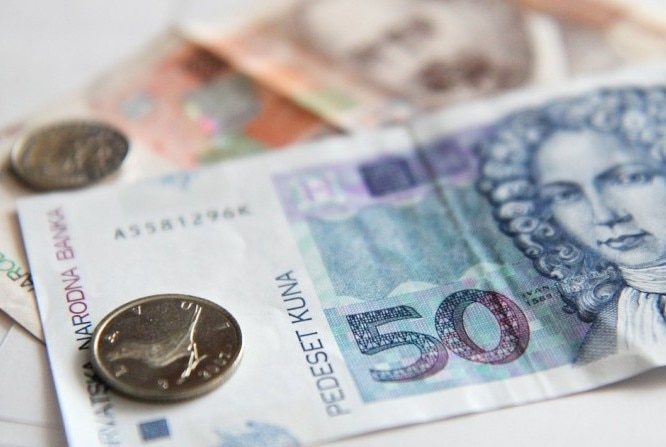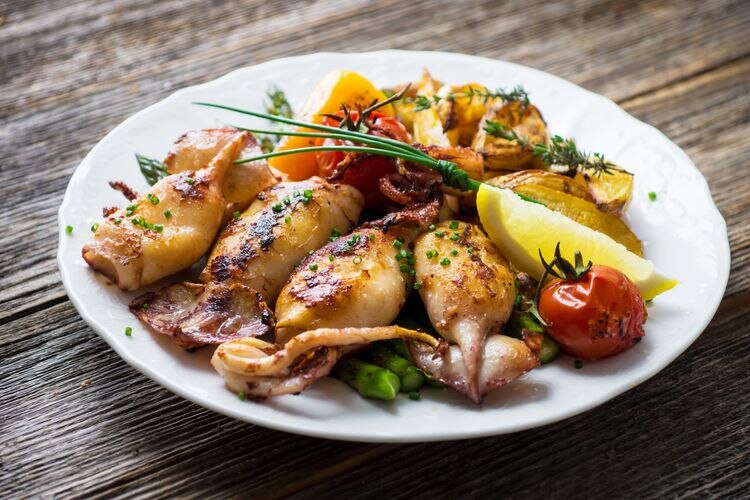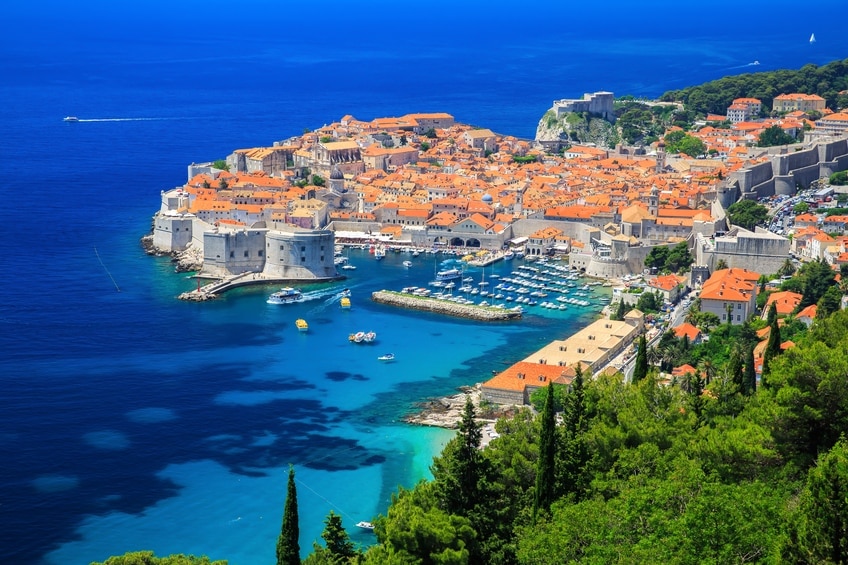Croatia Travel Tips and Information
Official Name
Republic of Croatia
Capital
Zagreb
Population
Country Code
Approximately 4.3 million
HR
Country Code (international calls)
+385
The flight time to Croatia is approximately 11~14 hours. Check the climate, currency, religion, manners, other information of Croatia below. Wishing you pleasant travels to Croatia.
Croatia is located near the western tip of the Balkan Peninsula, bordering Bosnia and Herzegovina, Serbia, Hungary, and Slovenia. The country can be broadly divided into three regions: the Mediterranean region, the mountainous region, and the Pannonian region. The most famous tourist destination in Croatia, Dubrovnik, is an exclave surrounded by Bosnia and Herzegovina and Montenegro.
Local Climate / Weather
Mediterranean Climate: Found along the coast, characterized by hot, dry summers and mild, wet winters. This region enjoys plenty of sunshine, making it ideal for beach activities. Continental Climate: Inland areas experience cold winters and warm summers. This climate is perfect for exploring cities like Zagreb, where summer temperatures can reach the mid-30s°C (mid-90s°F). Mountain Climate: In the mountainous regions, temperatures can drop significantly in winter, making it suitable for skiing and winter sports.
Currency & Tipping
Currency
Croatia uses the Euro (EUR) as its official currency. Travelers can exchange at local banks, exchange bureaus, or ATMs upon arrival. Here are some key points about the currency: Exchange Rates: Always check the latest exchange rates to ensure you get the best value for your money. Online converters and bank websites can provide current rates. Credit and Debit Cards: Credit and debit cards are widely accepted in urban areas, hotels, and restaurants. However, it's advisable to carry some cash for smaller establishments, markets, or rural areas where card payments may not be accepted. ATMs: ATMs are readily available in cities and tourist areas, offering convenient access to cash. Be mindful of potential transaction fees from your bank when using ATMs abroad.
Tipping
Tipping is customary in Croatia, but it is not mandatory. Here are some guidelines to follow when it comes to tipping: Restaurants: In restaurants, it’s standard to leave a tip of 10% to 15% of the total bill if you’re satisfied with the service. If a service charge is included, rounding up the bill is appreciated. Cafés and Bars: In cafés and bars, it’s common to round up the bill or leave small change as a gesture of appreciation. Taxis: For taxi rides, rounding up to the nearest euro or adding a small tip (around 10%) is courteous but not obligatory. Hotel Staff: Consider tipping hotel staff, such as bellhops and housekeeping, with a small amount (around 20 to 50 kuna) for good service.
Useful Travel Information

Voltage & Electrical Outlets
Croatia operates on a voltage of 230V with a frequency of 50Hz. The country uses Type C and Type F electrical outlets, which have two round pins. If your devices are not compatible with these specifications, make sure to bring a suitable travel adapter to charge your electronics without any hassle.

Internet Connectivity
Croatia boasts a good internet infrastructure, making it easy for travelers to stay connected. Wi-Fi is widely available in hotels, cafés, and public areas. Mobile data services are also reliable, with several local SIM card options available for purchase at airports and convenience stores. Popular networks include T-Mobile, A1, and Tele2, offering various prepaid plans to suit your need
Water for Consumption (Drinking Water)
The tap water in Croatia is safe to drink and meets high quality standards. In urban areas and tourist destinations, you can confidently consume tap water. However, if you prefer bottled water, it is readily available in stores and restaurants. Always check local advice, especially in rural areas, but generally, tap water is a safe and convenient option for hydration.
Culture, Religion & Social Etiquette
Culture
Croatia is rich in culture and traditions, blending influences from its diverse history and regional diversity.
Religion
The predominant religion is Roman Catholicism, which plays a significant role in Croatian life, influencing various customs and festivals throughout the year.
Social Etiquette
As a traveler, you'll find that manners are important in Croatian society; greetings are typically warm, with a handshake being the most common. It's polite to address people using their titles and last names until invited to use their first names. When dining, wait for the host to start the meal, and it’s customary to keep your hands on the table but not your elbows.
Food Culture
Croatian cuisine offers a delightful blend of Mediterranean and Central European flavors, reflecting the country’s diverse history and regional influences. Expect to savor fresh seafood along the coast, hearty meat dishes in the inland areas, and a variety of fresh vegetables and herbs. Street food is a must-try; popular options include ćevapi (grilled minced meat), burek (savory pastries filled with meat or cheese), and sarma (cabbage rolls). For a true taste of local flavors, consider dining at renowned restaurants such as Restoran 360 in Dubrovnik, which offers stunning views and gourmet dishes, or Stari Fijaker in Zagreb, known for its authentic Croatian fare. Exploring the vibrant food culture will enhance your travel experience and allow you to connect with the heart of Croatia.
Major Tourist Attractions & UNESCO World Heritage Sites
Major Tourist Attractions
Croatia is home to numerous stunning tourist destinations that offer a wealth of experiences for travelers. Dubrovnik, often called the "Pearl of the Adriatic," captivates visitors with its well-preserved medieval architecture and scenic Old Town, where you can walk along the ancient city walls or take a cable car ride for breathtaking views. The enchanting Plitvice Lakes National Park features cascading waterfalls and lush landscapes, perfect for hiking and nature photography. Split, known for the impressive Diocletian's Palace, invites exploration of its vibrant markets and waterfront promenades. Don’t miss Trogir, a charming coastal town filled with historic buildings and narrow streets ideal for leisurely strolls. Engaging in activities like swimming in crystal-clear waters, tasting local wines, or attending traditional festivals will make your Croatian adventure truly unforgettable.
UNESCO World Heritage Sites
Croatia boasts several UNESCO World Heritage Sites that highlight its rich cultural and natural heritage. Dubrovnik’s Old Town, a UNESCO-listed site, impresses with its medieval architecture and ancient city walls. The historic complex of Split with Diocletian's Palace stands as a remarkable example of Roman architecture. Trogir, another UNESCO site, enchants visitors with its historic core, showcasing Gothic, Renaissance, and Baroque buildings. Plitvice Lakes National Park, a natural World Heritage Site, mesmerizes with its cascading waterfalls and unique ecosystem, attracting nature enthusiasts from around the globe. These heritage sites offer a deep dive into Croatia's fascinating history and stunning landscapes.
Travel FAQs
Is English spoken in Croatia?
The official language of Croatia is Croatian, but in tourist areas, you can find support not only in English but also in German, Italian, French, and Spanish.
What is the best season to visit Croatia?
The best season to enjoy the Adriatic Sea is during the summer months of July and August. However, extending the season to include May through September is also recommended.
What is the most popular airport for traveling to Croatia by plane?
The main airport in Croatia is Zagreb International Airport, located near the capital.
What are the major cities in Croatia?
Notable cities include the capital Zagreb, the county seat Split, and the beautiful coastal city of Rijeka.
What is the safety situation in Croatia like? What should we be careful of?
Croatia is considered a safe destination for travelers, but they should be cautious of petty crime like pickpocketing in tourist areas and remain vigilant in crowded places. It's also important to respect local customs and be aware of road safety when driving or using public transportation.




